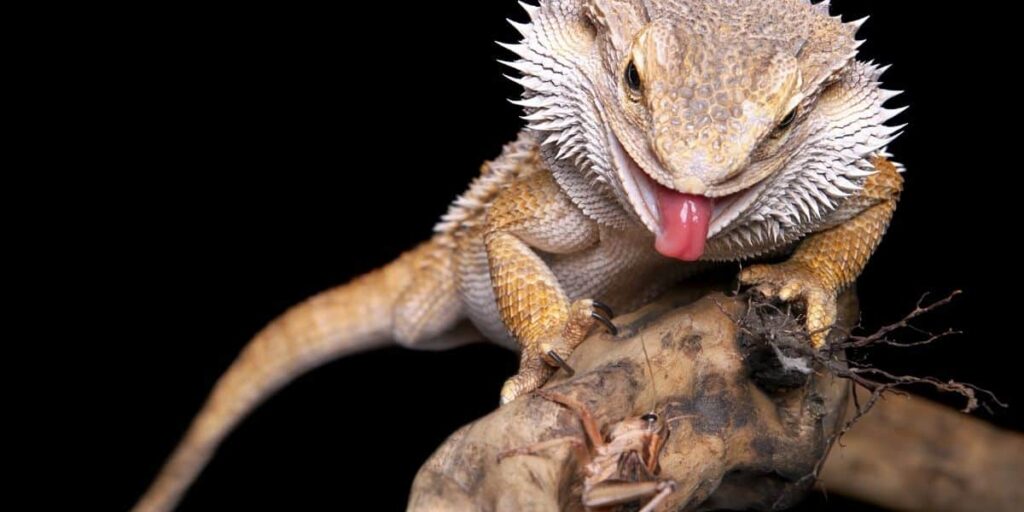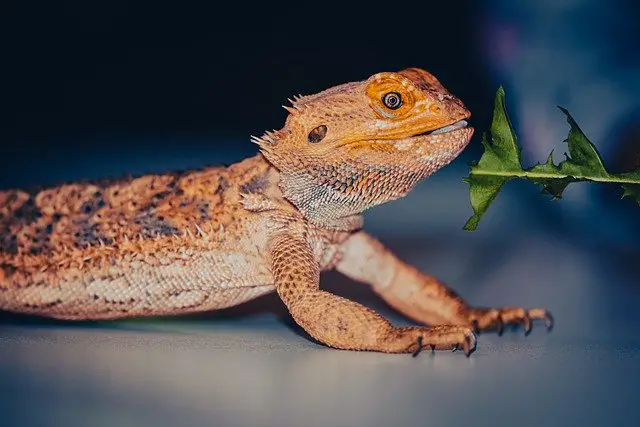At a glance, or sometimes even with a stern look, it’s difficult to tell whether or not bearded dragons have teeth and as they are part of the reptile family, you might wonder whether or not they have any concealed teeth (or any teeth at all).
Bearded dragons have teeth, and while they are often barely visible, they are numerous. Most bearded dragons have a combination of acrodont and pleurodont teeth and up to 76 teeth.
As bearded dragons become more popular as pets, it’s essential to learn how to care for them properly. While wondering whether or not bearded dragons have teeth is just an innocent question, the answer has several factors that you should be aware of as an owner.
In this article, we’ll cover not only the fact that bearded dragons have teeth but also how to care for them as an owner properly.
Do Bearded Dragons Have Teeth
Bearded dragons have a combination of acrodont and pleurodont teeth. Acrodont teeth can fall out due to a bang to the head, having a diet high in soft foods, or through disease, and once these teeth fall out, they cannot grow back.
Pleurodont teeth are connected to the jaw, making them stronger and better suited for breaking down food.
The front teeth of a bearded dragon are not rooted or part of the jaw structure and can therefore be susceptible to falling out due to some of the factors we just mentioned above.
The teeth at the rear are connected to the jaw and are therefore much more structurally sound. Time a bearded dragon’s teeth will lose sharpness and bluntness due to use over the years. This is natural and common to see older dragons with sharp, worn-down teeth.

Do Baby Bearded Dragons Have Teeth
Infant/juvenile bearded dragons will have teeth from birth and develop them while still inside the egg.
These teeth are needed to grip and break down vegetation and small insects while they are young to eat as they do not grow on a mother’s milk like many mammals and humans do.
A bearded baby dragon naturally has small but very sharp teeth, blunt with age due to the chewing and eating process over the years.
How Many Teeth Do Bearded Dragons Have
The number of teeth that a bearded dragon has will vary; however, a general average, according to leading reptile researcher Scott Hocknull is:
Acrodont teeth – 11 – 14 on each side of the upper jaw and 17 – 20 on each side of the lower jaw
Pleurodont teeth four on both the upper and lower day
How to Clean Bearded Dragons Teeth
Proper dental hygiene is just as crucial for your bearded dragon as for yourself; therefore, a vet needs regular checks and cleaning.
Outside of veterinary checks, you should have a weekly cleaning routine to maintain the quality of your dragon’s teeth and help to prevent decay and plaque buildup.
It’s re-emphasizing that regardless of how well you care for your bearded dragon’s teeth throughout its life cycle, their teeth will wear down with age, which is both completely natural and unavoidable and irreversible.
Do Bearded Dragons Bite
You might be pretty concerned to discover that bearded dragons do have teeth and, therefore, might also be wondering whether they bite as a result.
As with most creatures, a bearded dragon uses its teeth to primarily grip, chew, and break down food (insects and vegetation); it doesn’t bite to ‘attack’ and especially won’t bite things that it wouldn’t consider to be food like a human.
The exception is that if a bearded dragon feels threatened, it will bite as a defensive mechanism. As this isn’t the topic of this article, we won’t get into the details on this, but it’s worth noting that while a bearded dragon can bite, it would only do so if threatened.
Final Thoughts
While it might seem like bearded dragons don’t have teeth at a glance (especially if you look at an older dragon with worn-down teeth), they have an abundance and combination of different teeth from birth.
While these might be small and barely visible at times, they are incredibly sharp. Proper dental/hygiene maintenance is needed to keep your bearded dragon’s teeth in the best possible condition.
This is because they can be prone to disease, plaque, and gingivitis, leading to poor health and lower quality and longevity, so caring for your bearded dragon’s teeth should be a weekly routine.
- Do Black Caiman Live in Groups? Exploring the Social Behavior of These Large Reptiles
- Do Black Caiman Have Predators? Exploring the Threats to This Amazonian Reptile
- Do Black Caiman Eat Toucans? Exploring the Diet of Black Caimans in the Wild
- Do Black Caiman Eat Sloths? The Truth About the Diet of Black Caiman
- Can a Black Caiman Kill a Human? Exploring the Predator’s Potentially Deadly Bite




